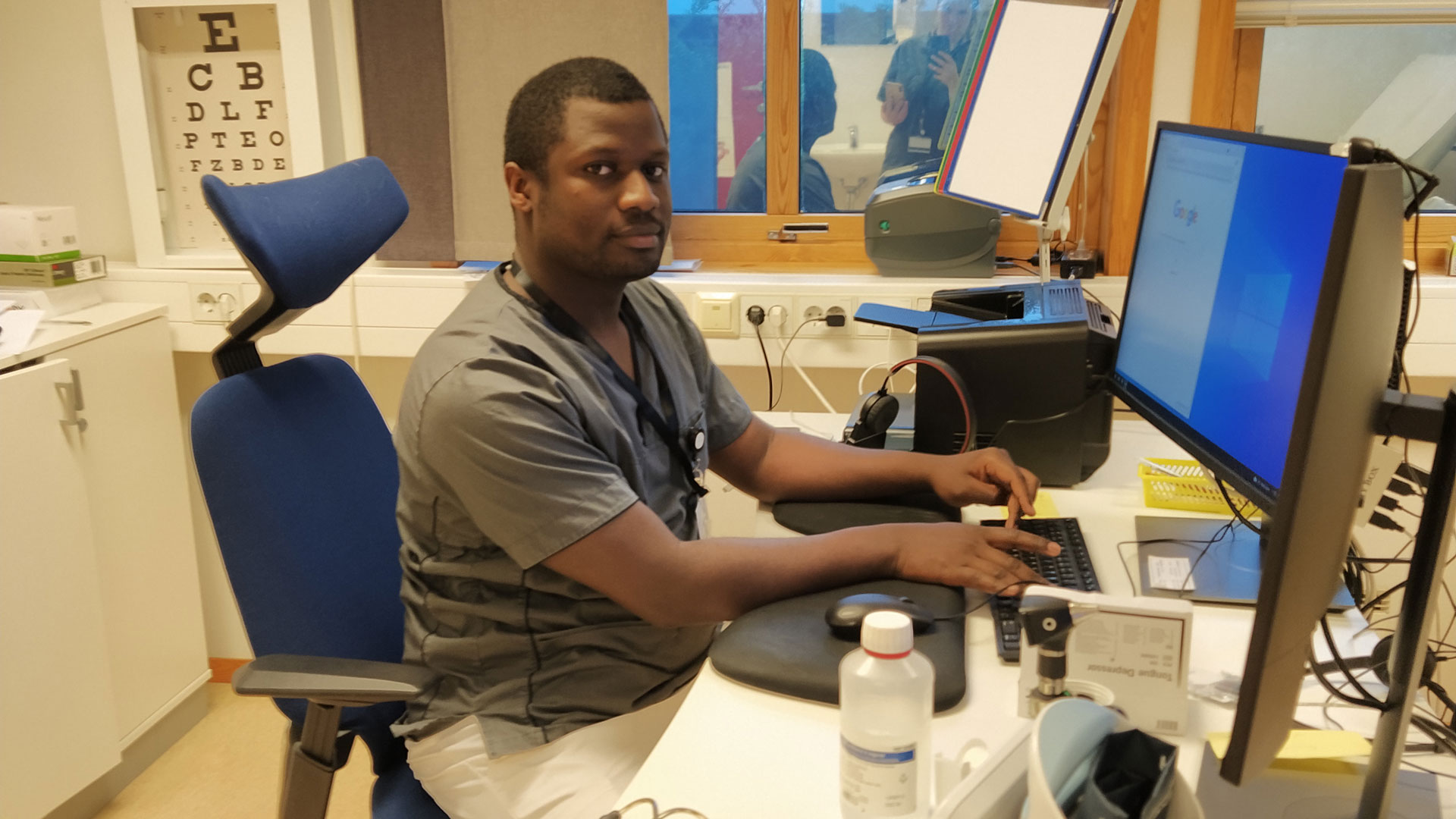
Admission and how to apply
Admission requirements
The following requirements need to be fulfilled:
- Relevant bachelor degrees, equivalent to 180 ECTS in health and social professionals such as physiotherapists, occupational therapists, nurses, orthotic and prosthetics engineers, medical doctor, social workers, social educators and speech therapists with bachelor in public health or community-based rehabilitation from a recognised institution.
- The grade point average of students' bachelor's degree must be C or better.
-
Applicants from outside the Nordic countries must provide evidence of their academic achievements and proficiency in English. See our page for how to document proficiency in English.
Admission to HVL
Why study Healthy Ageing and Rehabiltation?
By 2050 the global population aged 60 and above will double. This will challenge our health systems and lead to a high demand of competent rehabilitation professionals.
In this program you will get the knowledge and skills necessary for healthy ageing and rehabilitation practice, research and policy development from a global and interprofessional perspective. Upon completion you will be a competent scholar capable of leadership and interprofessional practice in the field.
You will learn about:
- Globally relevant theories, practices and research in the field of healthy ageing and rehabilitation
- Critical approaches to challenges of healthy ageing and rehabilitation locally, nationally and globally with reference to socio-cultural, economic and political contexts
- How to collaborate in interprofessional and intersectoral teams and with various stakeholders in the field of healthy ageing and rehabilitation
- How to use innovation, technology, and leadership in rehabilitation for shaping services and policies to address capabilities and well-being in everyday life for ageing populations globally
- How to conduct research and use of evidence in policy and service development
- How to direct focus to health promoting and reabling measures, ranging from older adults’ functioning and their living conditions, to the environmental contexts
Target group
Master in Healthy Ageing and Rehabilitation is relevant for students from a wide range of disciplines. For example physiotherapy, CBR, occupational therapy, nursing, dentistry, medicine, psychology, social work, public health, social education, prosthetics sand orthotics.
What kind of jobs are you prepared for?
- International, governmental and non-governmental organisations with relevance for ageing and rehabilitation.
- Management, policy, advocacy and practice work with older adults.
- Leadership positions within education, rehabilitation or health and social sector.

How will you be taught?
The programme is fully online with a two-week hybrid session in the second year of the programme. The study is flexible and most of the time you work on your own. There are however, regular online, synchronous sessions where you also meet your fellow students.
The programme is a cohort-based, two-year, full-time programme (120 ECTS) in English. To earn the degree, you are required to take six courses (for the total of 80 ECTS) and complete a master`s thesis (40 ECTS).
Programme structure and content for current students.

Programme Information Webinar
Interested in study Master in Healthy Ageing and Rehabilitation?
Here you may find the slides from the programme information webinar in 2022.
Student exchange – where can I travel?
You can apply for exchange in the third semester and you can choose from the following partner universities:
Bangladesh | University of Dhaka
Bangladesh Health Professions Institute (BHPI) is an affiliate of the University of Dhaka. BHPI is an academic branch of the Centre for the Rehabilitation of the Paralysed (CRP), located in Savar, about 1,5 hours from Dhaka. CRP is the only specialized rehabilitation hospital in Bangladesh that provides comprehensive and multidisciplinary medical and rehabilitation services with a focus on physical, social, psychological and economical aspects.
You do not pay tuition fees when you go to this exchange agreement. There will be other expenses, such as visas and vaccines. Teaching takes place in English. Visa is required.
Belgium | University of Leuven
KU Leuven is a large University with roots back to the 15th century. The University has 15 campuses located in 11 cities. The University has an international master's programme called Master of Rehabilitation Sciences and Physiotherapy and several Phd programmes in the same field.
This is an Erasmus+ agreement and Erasmus students do not pay tuition fees at this institution. You will also be eligible for an Erasmus grant. B2 in English is required to study at this university. Everyone participating in an Erasmus+ exchange programme must take an online language test online before they travel, and they will be given access to a language course.
Tanzania | Kilimanjaro Christian Medical Centre
KCMC is located approx. 5 km from Moshi town in the Kilimanjaro region. The hospital collaborates with various universities and schools in Tanzania and has many international students. It is considered one of Tanzania's largest and best hospitals.
Everyone going on an exchange to Tanzania must have student travel insurance and liability insurance. In addition, one must remember to take necessary vaccines well in advance of departure. To have an internship in Tanzania, you must obtain a student visa for the entire period you will be in Tanzania. Student visas are ordered through the Tanzania Embassy in Stockholm. There are no specific language requirements for exchange to Tanzania.
Further studies
The master's programme also qualifies you for entering PhD-studies and a research career.

